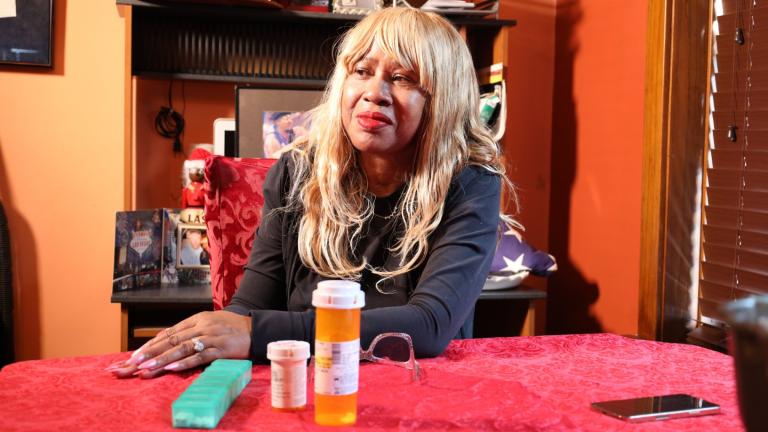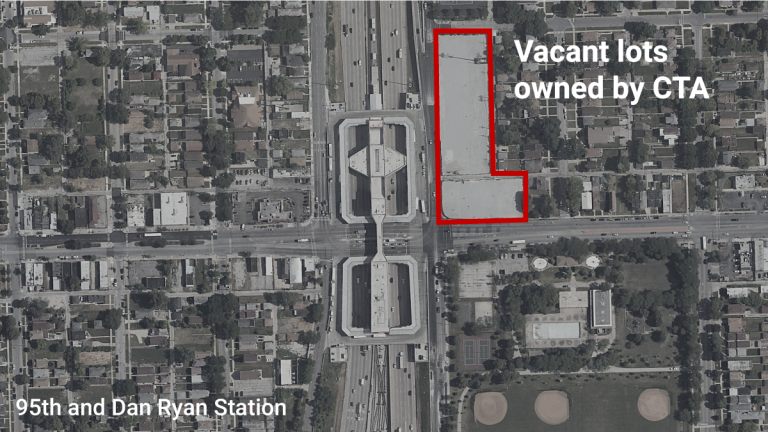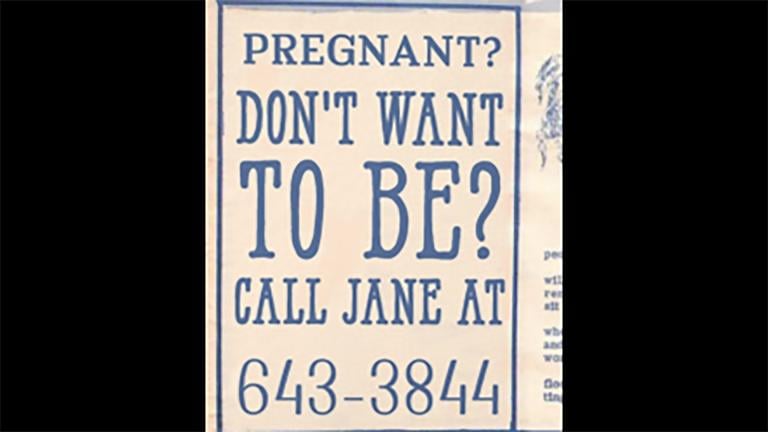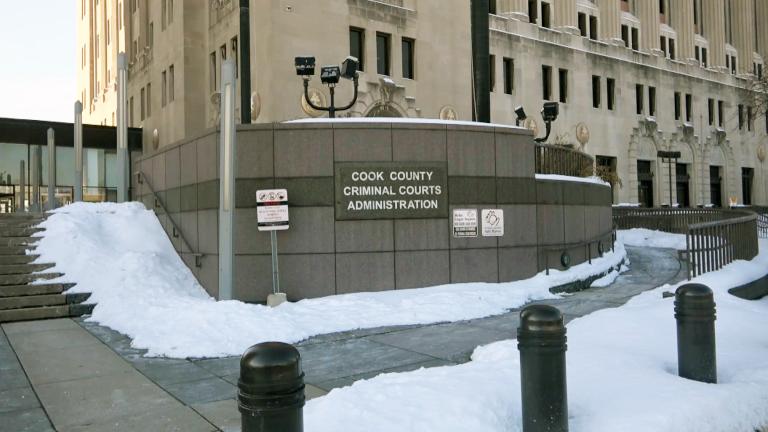Terry Kalil, a Minnesota resident and frequent traveler, came to Chicago for a short vacation in 2022, and like so many tourists, arrived at Union Station.
“I didn’t take a foot, a step, in one direction or another and I was accosted by a man asking if I needed a taxi,” she said.
Because she needed a ride to her hotel near Michigan Avenue, Kalil agreed.
She said the taxi ride to her hotel was less than 10 minutes. However, at dinner that evening, an alert from her bank notified her of a $248 charge.
“My stomach did a flip flop,” Kalil said. “I walked out of the restaurant and called my bank and said, ‘No, no, this is not correct,’ and so they put a hold on it.”
Kalil’s experience is not unique for those traveling in Chicago.
The city of Chicago issued a warning in February urging people to be aware of illegal taxis targeting populated areas and large events. The warnings directed consumers to dial the Department of Business Affairs and Consumer Protection’s (BACP) 311 line to file complaints.
Email records provided by the city through a public records request show Kalil phoned in a complaint at 10:14 p.m. the night of her ride. Six weeks later, BACP informed her it decided not to proceed with an investigation of her case.
“I sent them all of the information I sent to the city and then I got a response from the city, ‘not enough information to proceed,’” Kalil said.
Kalil’s complaint included her bank receipt with the driver’s full name, listed as a Khalid Mahmood, his city of residence, Orland Park, and the amount she was billed.
The city’s apparent lack of action called into question how the BACP handles other cases involving consumer protection in Chicago. DePaul’s Center for Journalism Integrity & Excellence (CJIE) filed a public records request with the BACP and discovered eight other complaints involving a driver named Khalid Mahmood reported in just one year, from April 2022-23.
The reports obtained detailed overcharge amounts, car descriptions, incident locations and some even included license plate numbers. Five of the reported incidents, like Kalil’s, occurred in close proximity to Union Station.
Further investigating Kalil’s case, CJIE visited the Orland Park address connected to her overcharge complaint. A resident named Khalid Mahmood living at that address denied any involvement with any wrongdoing, but in the garage behind his condo sat a black Toyota Camry with one of the license plate numbers — S657135 — reported in the complaints.
Of the 2,868 filed cab complaints received by the city’s BACP from April 2022-23, there were 675 payment issues, 916 reckless/unsafe driving complaints and 1,208 driver conduct issues.
Joe Schwieterman, a nationally recognized transportation authority and DePaul University professor in the School for Public Service, thinks a “big-time crackdown” may be necessary, “because people are getting quite brazen now.”
He believes the lack of consequences for unauthorized drivers plays a role in this problem as well.
“To impersonate a taxi driver is a lower-level crime, so people don’t feel that sense of fear,” Schwieterman said. “You pop on your yellow light and suddenly people think you’re a taxi. It can be done with just a few dollars’ expense.”
Those impersonating licensed drivers can easily order counterfeit rideshare company stickers or magnetic taxi labels online and place them on their car. Other tactics include claiming their payment system is malfunctioning so that the ride must instead be charged on third-party payment platforms.
“It’s the oldest trick in the book to say, ‘Oh, the meter is not working’ or, ‘It turns out that I lost your reservation, you’re gonna have to do it manually,’” Schwieterman said. “And suddenly, they’re demanding cash or demanding a lot of money. We’ve all seen that in taxis years ago, but now we’re seeing that you can bill people for a couple hundred dollars.”
Ald. Scott Waguespack (32nd Ward) has spent almost a decade fighting for heftier taxi and rideshare regulations in the city.
When told about Kalil’s case, Waguespack said, “BACP could take that (complaint), and should take that complaint, actively pursue it up to the point where if criminal charges needed to be filed with the state’s attorney, then they should hand it over as a whole file and say, ‘Here’s what we’ve found.’”
Just like any other Chicago tourist, Kalil says her trip had many high points — memorable dinners out on the town, a visit to the Art Institute, a stop at Wrigley Field.
“One bad experience, as we all know, you tell 100 people — I’ve told well more than 100 people,” she said. She firmly stated she has no plans of returning to the city where she was once overcharged.
Man Posed as Rideshare Driver and Kept Cards, Police Say
Money is not the only thing at risk when taking an unauthorized ride.
On March 3, while on parole for an identity theft conviction, Lance Baymon was arrested by Chicago police and charged with unlawful possession of three or more identification cards.
According to police records, Baymon allegedly obtained those cards by posing as a fake rideshare driver in January. The Chicago Police Original Case Incident Report, obtained through a public records request, states a 48-year-old victim allegedly gave Baymon a debit card to pay for his ride but received a different card in return. Not long after, the report states, the victim noticed bank withdrawals totaling $1,100.
In March, after his car was spotted by pod cameras, Baymon was arrested while driving a passenger in the River North neighborhood, according to the arrest report, which stated officers found “four debit cards in (the) center console cupholder.”
The arrest report states Baymon “was operating as an unauthorized rideshare service and for deceptive practices.”
During a court appearance, Baymon entered a plea of not guilty.
Baymon has previous arrests and convictions regarding alleged credit card and identity theft in the early 2000s, according to the Illinois Department of Corrections.
When reporters from CJIE contacted Baymon through his public defender, he declined comment.
The prevalence of fake rideshare drivers is concerning, according to Joe Schwieterman, a professor of Public Policy at DePaul University. “I think it is more pervasive than you think,” he said.
Uber requires its drivers to undergo a background check for “impaired driving and violent offenses,” according to its website. The app offers a variety of safety features in an effort to keep passengers safe including GPS tracking, emergency assistance and real time verification checks.
“We’ve built the Uber platform with safety in mind, which is why riders should only take a trip they’ve requested through the app,” said an Uber spokesperson in a statement.
Lyft requires annual background checks, location sharing and check-ins with riders after drop off. Customers with complaints about drivers can contact the company through the app.
State records show Baymon, 43, reported to prison in 2005 to serve a three-year sentence for violation of electronic monitoring. He is currently on electronic monitoring as a result of his arrest in March.








